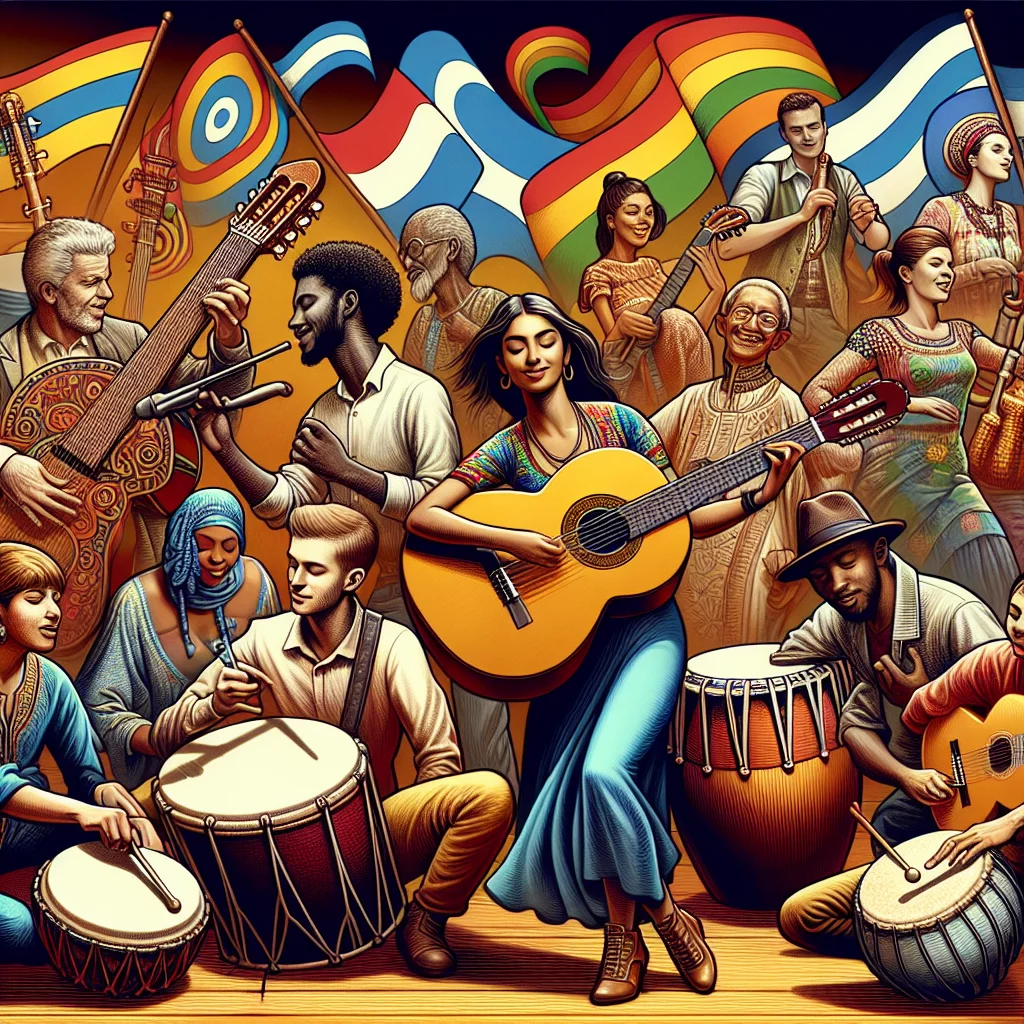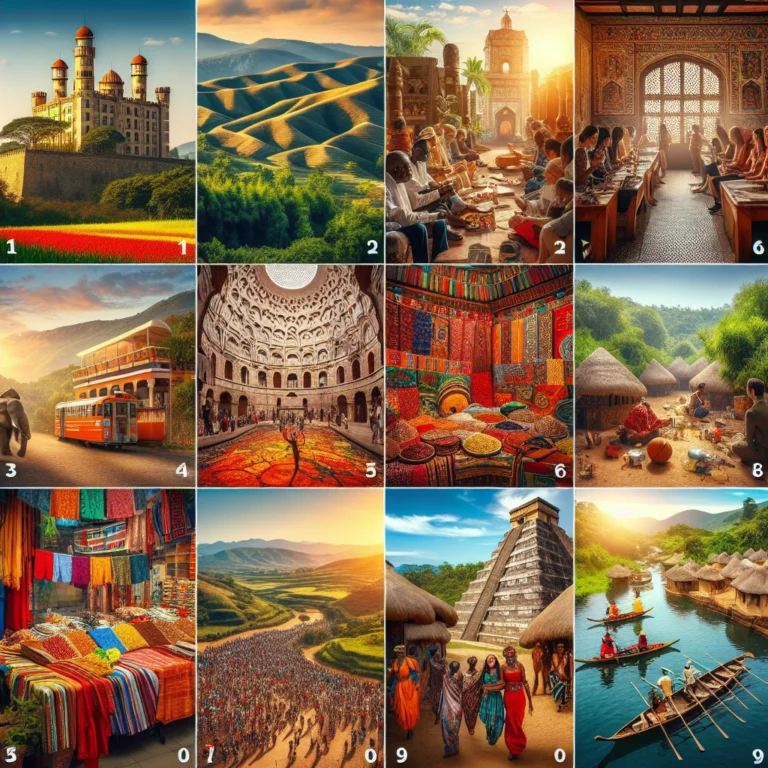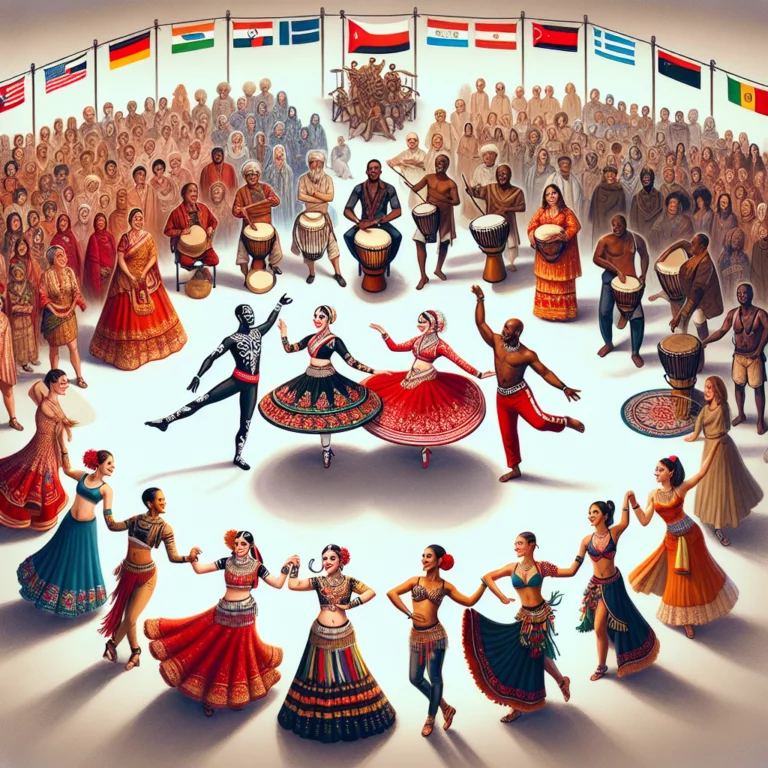Music To Your Ears: Experiencing World Music Cultures
Immerse yourself in the vibrant and diverse world of music cultures around the globe with “Music To Your Ears: Experiencing World Music Cultures”. This captivating article takes you on a musical journey, showcasing the rich tapestry of cultural experiences available from different countries and traditions. From traditional practices to modern cultural expressions, this article offers a well-rounded perspective on the power of music to connect people and celebrate the beauty of diversity. Get ready to be enchanted by the harmonious melodies and rhythmic beats that will truly make your ears come alive. Happy reading and let the music guide you on your cultural exploration!
The Power of Music in Culture
Music has always played a crucial role in shaping and reflecting the cultures of different societies around the world. It has the incredible power to connect people, transcend language barriers, and evoke emotions like no other form of art. In this comprehensive article, we will dive deep into the role of music in culture, exploring various music traditions from Africa, Europe, Native America, the Middle East, Asia, and Latin America. We will also discuss the modern transformations of music, the impact of technology, and the significance of music festivals as tools for cultural exchange. Finally, we will explore the challenges faced in preserving traditional music cultures and the role of music in cultural resilience.
Understanding the Role of Music in Culture
Music is ingrained in every culture, serving as a powerful expression of values, beliefs, and traditions. It serves as a bridge between generations, carrying forward ancestral knowledge and heritage. In many societies, music is an integral part of rituals, ceremonies, and celebrations. It has the ability to convey complex emotions and communicate messages that words alone cannot capture. Music is a universal language that can be understood and appreciated by people from different cultures and backgrounds, making it a potent tool for cultural exchange and understanding.
Exploring the Cultural Influence of Music
Music has a profound influence on culture, shaping identities and lifestyles. It reflects the values, dreams, and struggles of a society, often acting as a mirror to its collective consciousness. Through music, cultural stories are passed down, and historical events are immortalized. It serves as a medium for social commentary, enabling artists to voice their opinions on socio-political issues. Music has the power to inspire social movements, empower marginalized communities, and promote cultural pride. It has the ability to break down barriers, foster unity, and create a sense of belonging in a globalized world.
Music of Africa
The rich and diverse music traditions of Africa have had a significant impact on world cultures. Traditional African music is deeply rooted in the continent’s history and plays a crucial role in community life. With its rhythmic patterns, vibrant melodies, and powerful vocals, African music has captivated audiences worldwide. From the mesmerizing beats of West African drumming to the soulful harmonies of East African singing, the continent’s music styles are as diverse as its people. African music has influenced genres such as jazz, blues, reggae, and various forms of popular music, leaving an indelible mark on the global music landscape.
Classical Music of Europe
European classical music has a rich history spanning centuries, and its influence on global music cannot be overstated. It emerged during the medieval and Renaissance periods and reached its peak with composers like Bach, Mozart, and Beethoven. European classical music is characterized by its complex compositions, intricate harmonies, and orchestral arrangements. It laid the foundation for many musical genres and techniques that we still hear today. The symphony orchestra and opera, for example, are European innovations that have become symbols of classical music around the world.
Native American Music
Native American music is deeply intertwined with the spiritual beliefs and cultural practices of Indigenous communities across the Americas. It encompasses a wide range of musical styles, each with its own unique characteristics. Native American music often features a strong connection to nature, with rhythmic motifs mirroring natural elements like wind, water, and animals. Instruments such as drums, flutes, rattles, and vocals play a central role in Native American music. The haunting melodies and mesmerizing rhythms of this music have influenced various genres, including folk, country, and rock.
Music of the Middle East
In the Middle East, music holds a deep cultural significance and is closely tied to religious and social practices. It is a diverse and vibrant tapestry of sounds, reflecting the region’s multicultural heritage. Middle Eastern music is characterized by intricate melodic patterns, mesmerizing rhythms, and the distinctive sounds of instruments like the oud, qanun, ney, and darbuka. Each country in the Middle East has its own unique musical style, ranging from the sorrowful melodies of Arabic maqam to the lively and energetic rhythms of Turkish and Persian music. Middle Eastern music has gained popularity worldwide, with elements of its unique sound incorporated into various genres of global music.
Asian Music Cultures
Asia is home to a multitude of distinct and fascinating music traditions. From the classical music of India and the gamelan ensembles of Indonesia to the meditative sounds of Japanese shakuhachi and the colorful folk songs of China, the continent boasts a rich musical heritage. Classical music in Asia often emphasizes improvisation, intricate ornamentation, and the interplay between soloists and ensemble. Folk music, on the other hand, reflects the everyday lives, rituals, and traditions of communities across the region. Asian music has made its mark on the global stage, with many Western musicians embracing its unique sounds and incorporating them into their own compositions.
Music of Latin America
Latin American music is renowned for its infectious rhythms, vibrant melodies, and passionate lyrics. From the Afro-Cuban sounds of salsa and the romantic ballads of bolero to the energetic beats of cumbia and the soulful melodies of bossa nova, Latin American music embodies the region’s rich cultural diversity. The blending of African, Indigenous, and European musical traditions has resulted in unique and captivating musical styles that have captivated audiences worldwide. Latin American music has had a significant impact on global popular culture, influencing various genres and sparking dance crazes from salsa to tango.
Modern Transformations
In the modern world, music has undergone significant transformations as it adapts to changing cultural landscapes and technological advancements. Globalization and the rise of digital platforms have facilitated the fusion of musical styles from different cultures, leading to exciting cross-cultural collaborations and the emergence of new genres. Technology has also revolutionized the production, distribution, and consumption of music, making it more accessible than ever. While these transformations have expanded the reach of music and encouraged cultural exchange, they have also raised concerns about the preservation of traditional music and the potential loss of cultural authenticity.
Music Festivals Around the World
music festivals have become iconic events that celebrate the diversity of music and serve as platforms for cultural exchange. These gatherings bring together artists and audiences from around the world, showcasing a myriad of music traditions and genres. Famous festivals like Glastonbury in England, Coachella in the United States, and the Montreux Jazz Festival in Switzerland have become cultural landmarks, attracting people from all walks of life. Music festivals not only provide a platform for artists to share their music but also create opportunities for cultural immersion and understanding, fostering connections between people of different backgrounds.
Preserving and Reviving Music Cultures
Preserving traditional music cultures is a vital endeavor that requires education, awareness, and community involvement. As globalization and modernization continue to reshape societies, traditional music forms are at risk of being marginalized or forgotten. Educating younger generations about their cultural heritage and providing platforms for traditional musicians to perform and share their music are essential in preserving music cultures. However, preserving traditional music faces various challenges, including the loss of oral traditions, the commercialization of music, and the lack of resources for cultural preservation initiatives. Despite these obstacles, music remains a symbol of cultural resilience, and efforts to preserve traditional music continue to thrive.
In conclusion, music holds immense power in shaping and reflecting the cultures of societies across the globe. It serves as a universal language that connects people, bridges cultural divides, and preserves heritage. From the traditional music of Africa to the classical compositions of Europe, from the vibrant rhythms of Latin America to the meditative sounds of Asia, music has the ability to transcend borders and foster a sense of unity. By understanding, appreciating, and preserving the diverse music traditions of the world, we can celebrate the richness of human cultural expression and promote cultural exchange and understanding. So, let the music play and immerse yourself in the mesmerizing tapestry of world music cultures.







